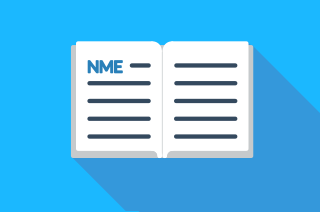By Aurore Raoux
As we work, teach and study from home during the lockdown, we realise the incredible importance of media channels to stay connected and keep our lives going. In particular, never have social-distanced readers been so reliant on news and that is why even greater attention must be paid to how we make use of it. In this context, media literacy plays an important role for citizens to continue being well-informed and stay safe.
The European Commission postponed the European Media Literacy Week during which series of events across Europe would have intended to raise awareness about the importance of digital skills and critical thinking. Let’s take a minute yet to see why media literacy has never been more relevant than during the confinement.
1/What does media literacy mean in time of crisis?
It is about equal access to information
In such time of crisis, media literacy goes well beyond an objective for national school curriculums. All categories of population, regardless of age, gender and status, should be able to easily access public authorities’ instructions, health organisations’ recommendations, community updates and calls for support. But also professional reporting based on facts, reliable sources and critical analysis. Some newspapers have lifted their paywalls to make sure reliable information makes its way to every household. Others stay subscription-based to be able to maintain the highest level of professional journalism. In both cases, it is about making sure diverse and quality content is out there. And media literacy plays a role for all citizens to stay informed and engaged.
It is about responsible behaviour
In a context of dire need to stay informed and connected, it is crucial for citizens to be able to differentiate between reliable professionally produced and non-reliable information. And even more so when health is at stake. Tedros Adhanom Ghebreyesus, WHO Director-General, said at the Munich Security Conference “We’re not just fighting an epidemic; we’re fighting an infodemic”. While staying at home, acting responsibly also means thinking twice before sharing unverified or anonymous pieces. As the Reuters Institute pointed out “covid-19 has intensified concerns about misinformation”. Researchers had found that while misinformation sites had less user traffic than established news outlets, they generate more user interactions on social media. Given the risk of disinformation spread, access to professional sources and the ability to exercise judgement is vital.
It is about democracy
The resilience of our democracy is being tested. ISD researchers identified that “Crisis points like Covid-19 are playing into “accelerationism” on the extreme right, which promotes the idea that democracy is a failure”. Empowering citizens to make well-informed decisions on which media to use, to have access to a variety of content and to critically assess information is key. On the basis of diverse and trusted information, citizens must also be able to actively engage into the debate, ask questions and expect further insights about the sanitary crisis and its impacts. All in all, it is important that citizens continue to exercise their fundamental rights of access to information and freedom of expression including when the day-to-day is being disrupted and newsrooms having to work under extraordinary circumstances.
Clearly, there will be a before and an after the coronavirus in our relation to information. In light of the impact of the crisis, stakeholders and decision-makers together will have to draw the conclusions on how we can best promote media literacy to best serve the purpose of informing citizens and strengthening democracy.
2/ How could the EU fill in the gaps?
Media Action Plan
The Media Action Plan announced by Commissioner Breton is an incredible opportunity to lead the global debate on media literacy. This should be two-fold. On the one hand, supporting inclusive media literacy education so that all segments of the population understand the true value of professional journalism. On the other, offering the long-term market conditions for the media to put quality and innovation at the heart of its business model and continue offering the highest standards of professional journalism to citizens.
Digital Services Act
Media literacy education must go hand in hand with creating the conditions for a safe online environment. Re-balancing the relation between distribution platforms and content producers is part of the solution that can be achieved through i) equipping the secondary liability regime with appropriate incentives to tackle illegal content and disinformation and ii) ensuring systemic platforms can only benefit from a safe harbour if they meet well-defined duty of care obligations. We could imagine for instance a special responsibility for structural platforms that have an important impact on the cultural sector to commit to guidelines and findability of media literacy initiatives.
Disinformation Code of Practice
The European Commission will soon have to assess the functioning of the Disinformation Code of Practice. This can turn out to be an important aspect of media literacy policy provided that distribution platforms are further incentivized to combat fake news and online disinformation. The balance likely lies in a mix of hard and soft laws encouraging platforms to act more in the public interest. Also working on a definition of “disinformation” that safeguards freedom of expression while sanctioning monetization of fake news in competition with professional reporting is a key element.










